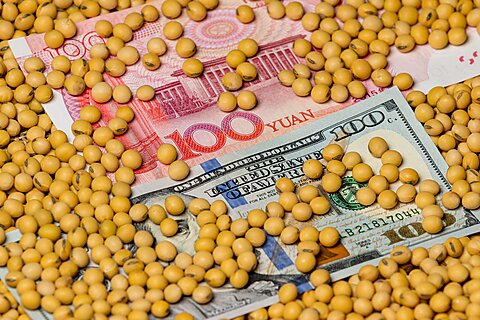Tad DeHaven
American farmers are again facing significant losses from President Donald Trump’s quaint obsession with tariffs. Once again, American taxpayers may be forced to pay for the damage.
In a social media post earlier this month, President Trump told “the Great Farmers of the United States” to “Have fun!” when the administration imposes more tariffs on April 2. The president of the American Soybean Association responded, “Farmers are frustrated. Tariffs are not something to take lightly and ‘have fun’ with.”
Indeed, soybean farmers were one of the biggest victims of Trump’s costly trade policies in his first term. Following retaliatory Chinese tariffs on American soybeans, exports to the soybean farmers’ largest foreign market dropped by 77 percent, according to the US Department of Agriculture. Of the $27 billion in total reduced US agriculture exports from mid-2018 to the end of 2019, soybeans represented 71 percent of the lost value.
While US soybean exports to China rebounded with a 2020 agreement between the two countries, American farmers’ share of the Chinese market has not recovered to pre-trade war levels. One reason is that Chinese importers can turn to Brazil and other countries.
With Trump back in the White House and his trade actions even more erratic and belligerent, foreign importers of US goods are seeking more dependable alternatives. Soybeans are just an example. Chinese importers are looking to South America as an alternative for chicken and pork and may turn to Australia for sorghum, barley, and wheat. It’s also not just Chinese importers. Other countries on Trump’s harassment list, including Canada and Mexico, are targeting US agricultural products for retaliatory tariffs and eyeing diversifying their sources of imports.
At the same time, American farmers staring down reduced access to foreign markets are also facing higher production costs due to the US tariffs on imported agricultural inputs. Steel and aluminum tariffs mean higher prices for farm equipment. Canada is by far the largest supplier of potash to the US, which means higher fertilizer prices.
Farmers getting squeezed on both ends of a renewed and potentially uglier trade war likely means taxpayers will get squeezed to help cover the consequences. The first Trump administration took $23 billion from taxpayers and gave it to farmers to compensate for their losses. In her January Senate confirmation hearing, Agriculture Secretary Brooke Rollins referenced the bailout, noting, “We are prepared to execute something similar … we can’t reinvent the wheel.”
While the administration is happy to provide farmers with another bailout following another self-inflicted gunshot to the economy, it’s already started handing out taxpayer money. Last week, Rollins used National Agriculture Day to announce the administration is issuing $10 billion in direct payments to farmers authorized by Congress in December.
This is all occurring while the Trump administration is supposedly trying to downsize the federal government. However, eliminating “waste, fraud, and abuse” in government programs while simultaneously offering multi-billion dollar bailouts—all in the pursuit of economic autarky—will accomplish no such thing.
Looking for a good example of government waste, fraud, and abuse?
The time the Trump administration is spending upending global trade is a waste, the rationale for it is a fraud, and forcing taxpayers to cover the damage is downright abuse.

